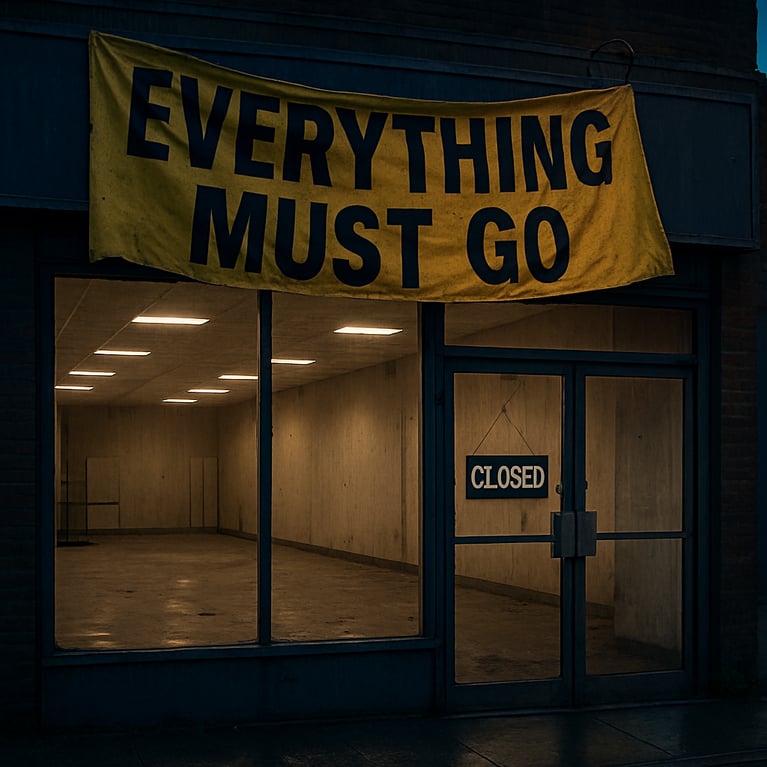The Excitement Trap That Kills Dreams
When you started your business, you probably told everyone about your great idea. You were confident it solved a big problem. You made vision boards, drafted business plans, recruited family and friends to help.
But here's what nobody warns you about: this excitement phase sets you up for emotional devastation. The research is clear. Most business failures aren't due to market forces. They're due to the psychological roller coaster that catches entrepreneurs unprepared.
The moment you face your first major setback, all that initial excitement turns into self-doubt. When people around you start questioning your decision or suggesting you "get a real job," that doubt becomes crushing. You begin second-guessing everything. You wonder if they're right. You start pulling back just when you need to push forward.
This emotional storm destroys more businesses than lack of capital ever could. The successful minority understand this dynamic and prepare for it. They expect negativity and setbacks. They build emotional resilience before they need it, not after they're already drowning.
Most entrepreneurs focus on business plans. The winners focus on emotional preparation as well.
The Product Obsession That Kills Sales
Here's a reality check that will sting: the quality of your product doesn't solely determine your success.
McDonald's is the number one restaurant in the world. With celebrity chefs, cooking competitions, and food innovation everywhere, the place with golden arches still dominates.
Look at any category: automobiles, beer, software, insurance. The best-selling product is rarely the best product. Most revolutionary inventions? You've never heard of them because their inventors couldn't market and sell.
The truth: your business success is 10% the quality of your product and 90% sales and marketing.
You're not in the restaurant business or consulting business or whatever you think you're in. You're in the sales and marketing business, one that happens to sell your product.
The successful 34% of new business owners and leaders fall in love with solving problems for customers, not with their clever solutions. They study their prospects' desires, fears, and frustrations. They become experts at communicating value, not just creating it.
In other words, stop obsessing over making your product perfect. Start obsessing over making your marketing irresistible.
The Leadership Mistake That Caps Your Growth
We celebrate people who try to do everything, checking off endless task lists. We brag about being busy and overwhelmed like it's a badge of honor.
It's not. It's failure.
When you handle every task, answer every email, and make every decision, you bottleneck your business. You become the constraint to growth. Companies consistently outperform when owners learn to delegate and systematize rather than trying to control everything.
Think of yourself as a head coach, not a player. Your job is to draft the game plan, recruit talent, and train people to perform. Then step back and let them execute.
The businesses that scale beyond their founders all have one thing in common: systems that work without the owner's constant involvement. They hire A-level people, give them clear outcomes to achieve, and get out of their way.
Every task you refuse to delegate is revenue you cap. Every decision you won't let others make is growth you prevent.
The successful minority build teams and systems. The failing majority build to-do lists and stress.
Too many good businesses die because the owner didn't expect the emotional punches. Don't let yours be one of them.
What’s next?
If you want to put these fixes into play in your own business, that’s what we do in Business Master Class. Twice a year. Seats are limited. Find out more here.
Every weekday morning, I also send strategic insights to over 350,000 business leaders through ☕DarrenDaily. Join Us and start each day with the mindset that separates successful businesses from the 66% who fail.

.png)
